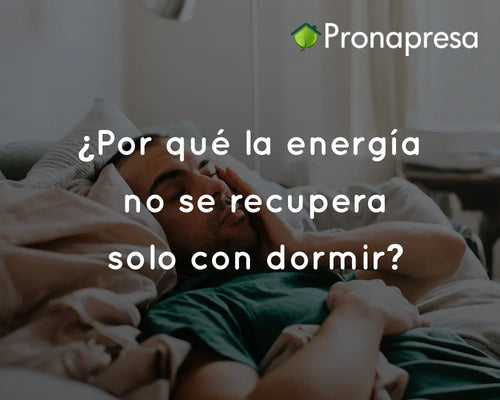
1. Reduction of allergens in the air
One of the most significant benefits of air purifiers is their ability to reduce airborne allergens, such as dust, pollen, and dust mites. These allergens are common triggers of allergies and asthma, affecting a large portion of the population. Air purifiers equipped with HEPA (High-Efficiency Particulate Air) filters can trap up to 99.97% of particles sized as 0.3 microns, which includes the vast majority of allergens.
Specific benefits:
- Reducing allergy symptoms: By reducing the concentration of allergens in the air, air purifiers help minimize symptoms such as sneezing, itchy eyes, nasal congestion, and coughing.
- Improved sleep quality: People with allergies tend to sleep poorly due to congestion and other bothersome symptoms. A cleaner environment contributes to more restful sleep.
- Fewer asthma episodes: Asthma patients experience fewer and less severe attacks when they are in an environment with clean, allergen-free air.
2. Elimination of pollutants and toxins
Indoor air can be contaminated by a variety of volatile organic compounds (VOCs), tobacco smoke, cleaning products, paints, and other chemicals. These pollutants can be toxic and potentially carcinogenic. Air purifiers are effective at removing many of these pollutants, especially those that use activated carbon filters, which are very efficient at absorbing gases and odors.
Specific benefits:
- Reducing the risk of respiratory diseases: By removing toxins and pollutants from the air, you reduce the risk of developing chronic respiratory diseases such as bronchitis and lung cancer.
- Headache and Dizziness Prevention: VOCs and other pollutants can cause headaches, dizziness, and nausea. An air purifier can significantly reduce these symptoms.
- Protecting Children's Health: Children are especially vulnerable to the effects of air pollutants, which can affect their development and long-term health. Maintaining clean air is important for their well-being.
3. Elimination of viruses and bacteria
Air purifiers can also play an important role in reducing the spread of infectious diseases. Some models are equipped with additional technologies such as ultraviolet (UV) light and ionization, which are capable of destroying bacteria and viruses present in the air.
Specific benefits:
- Lower incidence of contagious diseases: In crowded places like offices, schools, and hospitals, air purifiers can reduce the transmission of illnesses like the flu, the common cold, and, more recently, COVID-19.
- Healthier Environment for Immunocompromised People: People with weakened immune systems can greatly benefit from cleaner, pathogen-free air, reducing their risk of infection.
- Odor Reduction: In addition to eliminating pathogens, many air purifiers also eliminate unpleasant odors caused by bacteria and mold, improving the quality of the indoor environment.
[product=taotronics-air-purifier-with-true-hepa-filter]
Equipped with True HEPA filtration technology, designed to remove fine particles that can affect the health and well-being of your home.
[/product]
4. Improved mental health and overall well-being
Clean air not only affects our physical health, but also our mental health and overall well-being. Air quality has a direct impact on our mood, energy levels, and ability to concentrate.
Specific benefits:
- Stress reduction: Clean, fresh air can contribute to a more relaxing environment, reducing stress and anxiety levels.
- Improved concentration and productivity: A pollutant-free environment improves cognitive function, which can be particularly beneficial in work and study environments.
- Greater sense of well-being: The perception of clean, fresh air can improve overall well-being, contributing to greater satisfaction and happiness at home.
5. Specific benefits for vulnerable groups
Certain groups of people, such as older adults, children, and those with chronic illnesses, are particularly sensitive to air quality. Air purifiers can offer specific benefits for these groups.
Specific benefits:
- Older adults: Older adults are more susceptible to respiratory and cardiovascular diseases. Clean air can help prevent exacerbations of pre-existing conditions such as COPD and hypertension.
- Children: Children breathe faster than adults and are still developing, making them more vulnerable to the negative effects of air pollution. A clean environment is important for their healthy growth and development.
- Patients with chronic conditions: People with conditions such as pulmonary fibrosis, chronic obstructive pulmonary disease (COPD), and heart failure can experience improved quality of life and fewer hospitalizations thanks to cleaner air.
6. Improved sleep quality
Good rest is essential for physical and mental health. The presence of pollutants and allergens in the air can affect sleep quality, causing frequent awakenings and sleep apnea. Air purifiers can significantly improve sleep quality by providing a cleaner, healthier environment.
Specific benefits:
- Fewer nighttime awakenings: Reducing allergens and pollutants can help reduce nighttime awakenings caused by coughing, sneezing, and congestion.
- Deeper Sleep: Clean air free of unpleasant odors can promote deeper, more restful sleep.
- Reducing sleep apnea: In some cases, reducing allergens and particles in the air can help improve sleep apnea symptoms.
7. Protection against external contamination
In urban areas and near industrial areas, outdoor pollution can infiltrate homes and offices, affecting indoor air quality. Air purifiers can act as an additional barrier against this outdoor pollution.
Specific benefits:
- PM2.5 Particle Reduction: Air purifiers are effective at removing fine and ultrafine particles (PM2.5 and PM1) that are particularly harmful to health, as they can penetrate deep into the lungs and enter the bloodstream.
- Lower cardiovascular risk: Long-term exposure to air pollution has been associated with an increased risk of cardiovascular disease. By reducing exposure to these pollutants, air purifiers can contribute to a lower risk of heart attacks and other cardiac problems.
- Protection during extreme pollution episodes: During high-pollution events such as wildfires or smog spikes, air purifiers can be crucial for maintaining a safe and healthy indoor environment.
8. Reduction of the effects of tobacco smoke
Tobacco smoke contains thousands of toxic chemicals, many of which are carcinogens. Even passive exposure to tobacco smoke can have serious health consequences, especially for children and people with respiratory illnesses. Air purifiers can help mitigate the effects of tobacco smoke by removing harmful particles and gases.
Specific benefits:
- Protection for non-smokers: Air purifiers can protect non-smokers from the harmful effects of secondhand smoke, improving respiratory and cardiovascular health.
- Reducing lingering odors: In addition to their health benefits, air purifiers also help eliminate lingering tobacco smoke odors, improving indoor air quality.
- Better environment for children and pets: Children and pets are particularly vulnerable to the effects of tobacco smoke. An air purifier can provide a safer and healthier environment for them.
9. Skin Benefits
Air quality can also affect our skin. Air pollutants can cause irritation, dryness, and premature aging. Maintaining clean air can have direct benefits for the health and appearance of our skin.
Specific benefits:
- Preventing Skin Irritations and Allergies: By reducing the presence of irritating particles and chemicals in the air, air purifiers can help prevent skin irritations and allergies.
- Less dryness: Clean, pollutant-free air can help keep skin more hydrated and healthier.
- Delays premature aging: Exposure to air pollutants has been linked to premature skin aging. A clean environment can contribute to younger, healthier skin.
Air purifiers offer a wide range of health benefits, from reducing allergens and pollutants to improving mental health and sleep quality. In a world where air quality is a growing concern, investing in an air purifier can be a prudent decision and beneficial to overall well-being. Whether in the home, office, or any other indoor space, an air purifier can transform the environment, providing a haven of clean, healthy air.























































